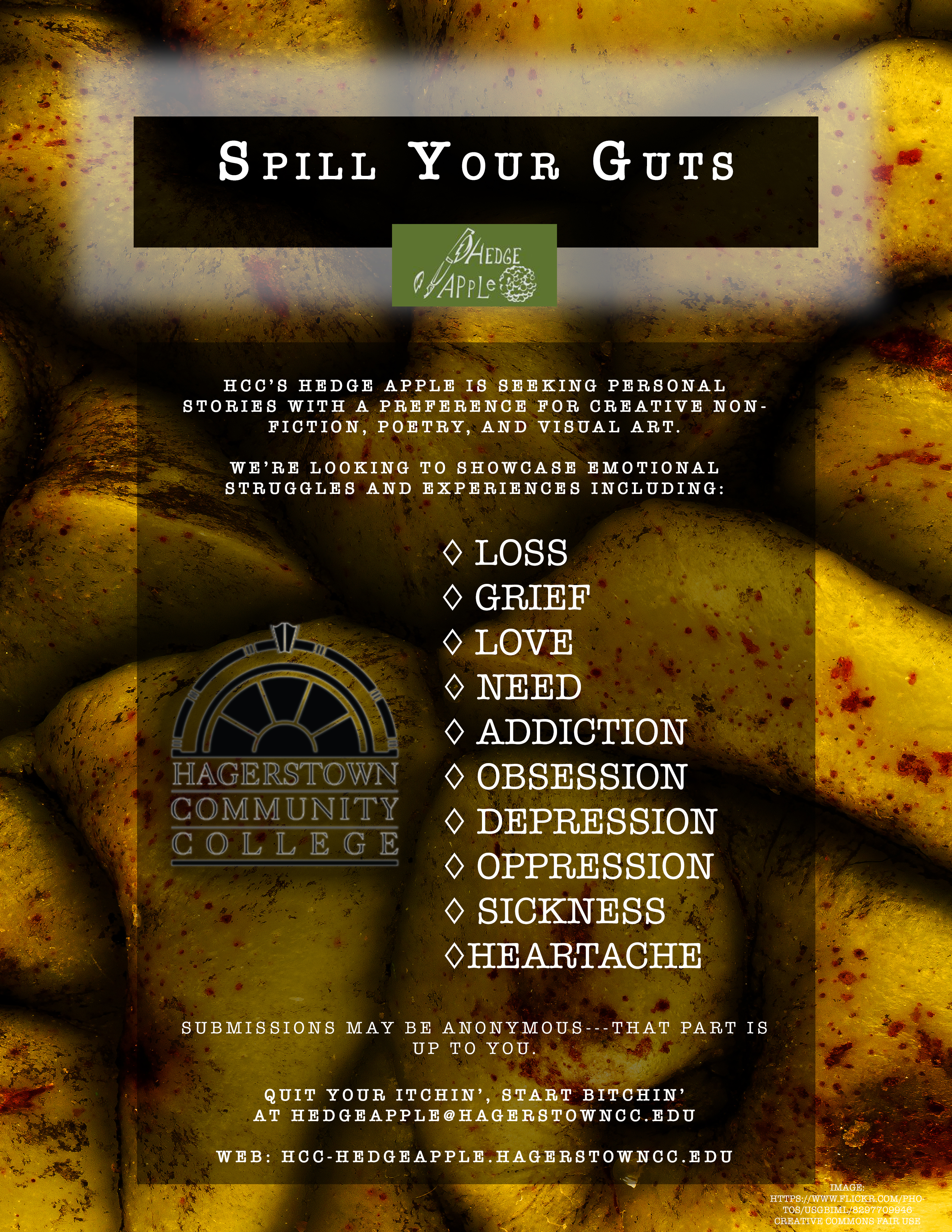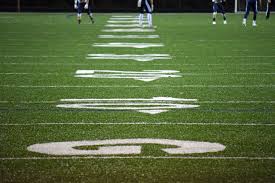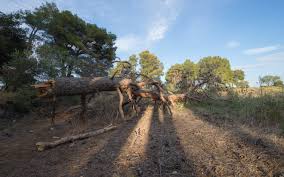The Food Upon Which Others Feast – by Thomas Elson
This story carries a chilling note of the thought-provoking.
Please, enjoy the read. We certainly did.
___________
THE FOOD UPON WHICH OTHERS FEAST by Thomas Elson
We mapped this route generations earlier, and irrespective of origin, the path is the same for everyone. We also dictated a hierarchy: We, the vanguards, would watch the votaries whom the witnesses were told monitored them.
Two of our votaries perched thirty feet above the driveway in front of a limestone building constructed in 1868. Obadiah, the senior votary, impeccably attired in a dark blue suit, silk tie – the color of which befitted our calendar, and sunglasses, rested his hands on the polished railing. Ariel, young and eager to impress, hovered with his clipboard pressed into his gray sweater.
“Who are the two new witnesses?” Ariel looked at the older votary, bit off a piece of beef jerky, and waited for an answer.
“Take notes at the briefings the way I taught you and you’d know.” Obadiah smiled and looked down.
Ariel, by now used to such sarcasm, tapped his pen on the report form attached to his clipboard. “Humor me.”
Obadiah shrugged and continued. “That first guy, the red-headed one, is Herb Peavy. He used to sneak into second-floor bedrooms and stomp women to death with his climbing spikes. It’s his second time here. He’d be at the North Center if the vanguards didn’t still have some use for him.” He waited for a moment. “Just watch him. All he wants to do is get close to that thin kid. If he were anywhere but here, he’d get detained for-“ Obadiah waited a second. “Following too close.” Laughed at his own joke.
“That thin guy looks like an eleven-year-old girl.” Ariel pulled his sweater over his belt buckle. “Hell, he looks like a-”
“Don’t say it. Do not say it. That’s Kenny Dumars. Just two months ago, he was a part-time wheat farmer and full-time high school Spanish teacher livin’ the dream. Even set-up housekeeping with his girlfriend. But the sheriff caught a Cessna unloading marijuana on his property. Ol’ Kenny boy had himself a third job – being paid for the use of his farm land.” Obadiah grinned, added, “Poor guy’ll be eaten alive in here,” then shook his head and unbuttoned his suit jacket.
“He ought’a have a good time in this place with Herb tailgating him.” Ariel watched the red-head smooth his hands over the thin kid’s shoulders. “What’d they want us to do with ‘em?”
“Well, Herb’s bound to do what he did the last time.” Obadiah adjusted his tie, nodded toward the driveway. “His only value to the vanguards is to see how Kenny reacts around him at the South Center. So, we are required to keep ‘em together after processing and watch what happens.”
When new witnesses arrived we required they remain alone for a short period of time. Alone and unattended, but not unobserved, and certainly not unrecorded. Their movements to be transcribed by votaries onto a checklist. Posture erect? Hunched over? Gesticulations made? People touched? Pockets reached into? Items extracted? Stepped out of line? Anything picked up? Rocks? Cigarette butts?
The witnesses stood as if transfixed. Blank stares. Clenched teeth and tight jaws. Minds working overtime. They stiffened as a scattershot wind hit their faces. Herb looked east toward the wide expanse of farmland and inhaled the scent of the harvest. Kenny stared at contrails swirling twenty-six thousand feet above. Both shuffled around on the gravel driveway. Their sounds alternated between crunching and hammering. Neither looked toward the North or South Centers.
Inside the South Center Processing and Orientation section a votary with a sore-knee limp walked toward the two witnesses, handed each a towel and small cup half-filled with delousing shampoo. “Well, Herb. I figured I’d see you again. What happened? You hear we got a new line of clothing?” He pointed at the open shower. “You know the drill. And keep it in your hair for a few minutes.”
Amid echoes of “Fresh meat,” and “Come over here and visit me,” Herb walked with his middle finger aloft. He abruptly shouted, “Looks like you’re working old three-pack pretty hard,” nodded toward the man laboring to stand – his left hand clasped three unopened packs of cigarettes, then hurriedly walked to his chair, lifted his pad and charcoal, resumed drawing.
Kenny held back until Herb returned, then clutched his towel where he thought it might do the most good, and, despite wet floors, rushed into the shower. He finished without drying, quickly headed back, and hurriedly dressed.
The votary handed each a paper bag and directed them to carry it in their right hand. “What you’ve got there is a toothbrush, toothpaste, and two hotel-sized bars of Ivory soap. Commissary takes ninety days to kick-in but most of you will be gone by then. So, other than your meals, that’s pretty much it.”
The votary raised his palm. “Ya’ll gonna be buried under the mass of senior witnesses. Just know that you have no rights here. Only privileges. The rest you gotta figure out on your own.” He looked at Kenny in his practiced manner. “Consider that your orientation.”
The votary knew Kenny was too frightened to remember what was said, but his perspective would change after the doors slammed. When it became apparent that he could never again open or close a door, walk from one room to another, chose when to eat, what to eat, where or when to sleep without first asking permission. When Kenny had the look of an animal that decided to stop running, we would know he had learned our Rules: Eyes down but stay alert – Don’t look but see everything –When you walk hug the wall but do not touch it – There are no gifts; accept anything and you are in debt. – Ask for permission before you do anything.
The votary led them into an area the size of a basketball court with a walkway surrounding a chain-link enclosure. He assigned both witnesses separate bunks within fifteen feet of two exposed toilets and one rust-stained sink. Then he repeated what he said each time, “Good luck. And don’t come back.” He locked the gate and walked away.
As Kenny waited in line that evening, his eyes moved from witness to witness. He watched how each held two utensils under a stainless-steel tray, and silently moved toward a wall opening, then placed the tray on a small ledge, and remained motionless as meat and green beans were plopped on it. After a half-pint carton of milk hit a tray, a voice barked, “Next!” and the line moved forward.
Kenny set his tray on a table near the stage. Herb pulled a chair out, turned it slightly, dropping his tray next to Kenny. Herb looked at Kenny, “What’cha need from the commissary?” Then skimmed his tongue across his upper lip and moved his hand under Kenny’s. After a moment Herb raised his fingers slightly, pulled his hand back, and left a list of commissary items under Kenny’s palm. “I can get you ramen noodles, pens, paper, stamps, cigarettes, peanut butter, pretty much anything. What’cha want?”
“They told us we can’t use it for ninety-days.” Kenny moved his hand away.
Herb pushed a package of gum between their trays. “But I can. I’ve been here before.”
Silence.
“Why me?”
Herb stroked Kenny’s hand. “You’re my friend.”
Kenny leaned forward, gently raised his hand, gracefully rested it on the back of Herb’s head, and whispered.
Herb’s eyes flared. “We’ll see smart guy.” Then, contemplating his next move, said, “We’ll see how you’re taken care of from now on.” He grabbed Kenny’s half-pint of milk, shoved it into his coat sleeve, stood, left the package of gum on the table, and walked toward the stage and the line of witnesses waiting to be frisked.
A votary bent to frisk him – calves first, then thighs and hips. Herb, with a one-arm motion, slid the milk carton from coat sleeve to palm and onto the stage. When the votary found nothing, he turned to frisk another witness. Herb picked-up the milk carton, raised his arm, allowed the carton to drift inside his coat sleeve, cupped his hand, lowered his arm, and walked away.
An hour and a half later sounds and smells reverberated inside the enclosure. Toilets flushing or not flushing. Bodies unwashed for days. Scattered loud voices. Small groups talking, shuffling. Bunks creaking.
A votary wheeled in a console television. “This will remain on the channel it’s set to.” He paused. “That safety razor on top the t.v. has one blade.” He pointed to the razor. “You have one-half hour to shave,” he said to everyone. “When I return at eight o’clock, that razor will be right there.” He struck the top of the console with his knuckles. “With the razor blade next to it. If I see anything other than that, I will respond.” Tapped the console and left the enclosure.
Herb rose from his bunk with three other witnesses, walked up to Kenny, blinked slowly. “You busy?”
No reply.
“You too busy to spend some time with us?” Gestured toward his bunk, then pulled Kenny’s head closer, “You owe me.”
“The hell I-”
“Shut up. Shut the hell up. You owe me. I gave you something. And now you owe me. Don’t renege or I’ll make sure they yank your privileges. Send your ass down behind them damn white doors.” Within moments he laughed, raised his voice a decibel below a yell. “You want that? You wanna be b’hind them doors downstairs?”
The three witnesses from Herb’s bunk surrounded Kenny, then tightened their circle. Kenny’s head jerked back. Pain descended from eyes to mouth, then came guttural sounds, and he was on the floor in a fetal curl. He knew he was leaking – red or brown – but did not know which. One of the witnesses set a blade on top the television.
The next afternoon Kenny waited in yet another line of witnesses to be told what to do, where to go, yelled at about something, lined up to go somewhere or lined up to come back. It didn’t really matter. His knees ached, everything ached, and he was ashamed of the stains between the hip pockets of his jeans. Herb cut in. Within seconds Kenny was again encircled.
“You.” Herb spit on the floor. “You do not say ‘no’ to me.” When he signaled, the circle blended away, and Kenny was on the floor with blood on his shirt darkening yesterday’s stains.
A votary meandered over. “Get off the floor.” He raised his voice. “Get over to the infirmary.”
We now knew Kenny had learned the Rules.
Late the next day, when he awoke, Kenny’s eyes followed the white infirmary wall toward a metal desk at the opening of the ward. He blew at the detritus descending from the ceiling, watched it float away, then concentrated on the liquid dripping through a tube attached to an elevated bag. When he pulled down his sheet, he saw stitches below his rib cage and several blood stains.
A nurse from Honduras walked up. “¿Como estás?” Kenny asked.
She eagerly responded. “¿Pero, como estas?” Then smiled and touched his shoulder.
A witness two beds over pounded his mattress. “Hey, lady, get the hell over here and take care of my bedpan.”
She rolled her eyes, stooped slightly, walked toward the demand. When she returned, Kenny continued with questions about Honduras, her hometown, his difficulties. In an environment where she was held in less esteem than children’s pets, she lingered. On his third day, she handed him a gift – a Hershey’s candy bar.
“No te puedo pagar,” said Kenny.
“No need to repay,” she said. Then added, “You don’t look like you belong here.”
Kenny laughed, then winced. “Gracias.”
On his final morning, the nurse placed the Spanish edition of “One Hundred Years of Solitude” on Kenny’s bed. “When you go back, read it,” and tucked it under his pillow, then patted the pillow as if fluffing it. “Wait. Open then.” She knew when he left the infirmary he would not be searched.
A week later Kenny was strong enough to walk the circumference of the enclosure. He moved carefully. His head down just enough to seem disinterested – as if passing through on an assignment.
#
Kenny had waited almost six years since his transfer to the North Center’s third floor when he heard a votary’s clipped accent call his name for the first time, “Du mars.” The sound seemed to extend. “Kaaaa-neee Duuuu-maws. Somebo’y lu’ ya.” He pitched a nine-by-twelve manila envelope on the concrete floor. Kenny hustled down iron steps to retrieve the package.
Back on the third floor, he flipped to the last page, saw the final word: DENIED. But when he read the preceding three words his body constricted. “… the same fate.”
He reached for the book the nurse had given him. Opened it to the section with the indentation. He did not understand why they allowed him to keep the book. Kenny closed his eyes. His contours hardened as if chiseled. DENIED, that last word on the final page told him whether sunny or dark, summer or winter, held no relevance for him. He knew what came next.
He would soon be inside a metal building, past racks of the North Center’s food items – cans of peaches and lard, bags of rice and beans, five-gallon bottles of ketchup and mustard – walking toward unmarked doors, then into a building connected to a small concrete warehouse, and through an opening the width of a garage door. When he stopped, the door would descend.
Lights would illuminate five unsmiling votaries in dark suits and one senior witness. At this point, Kenny would need assistance. We knew it required an element of irrationality to voluntarily continue. “Let’s go,” a votary would say. “Lean on me.”
Kenny’s shallow breathing would be familiar to these votaries, as would the next sequence – exam table. White sheets. Straps. No needles. No tubes. Eyes never averted. No request for last words. No more time.
Our Rules dictated that Kenny remain awake while the senior witness held the toothbrush the nurse had secreted inside the book. The same sharpened toothbrush Kenny shoved__ into Herb Peavy’s carotid artery.
The senior witness would press that toothbrush into Kenny’s neck until there was no longer a pulse.
– THE END –
______________
Thomas Elson’s short stories, poetry, and flash fiction have been published in numerous venues such as Calliope, Pinyon,Lunaris Journal, The New Ulster, The Lampeter, Blood & Bourbon, Pennsylvania Literary Journal, and Adelaide Literary Magazine. He divides his time between Northern California and Western Kansas.







